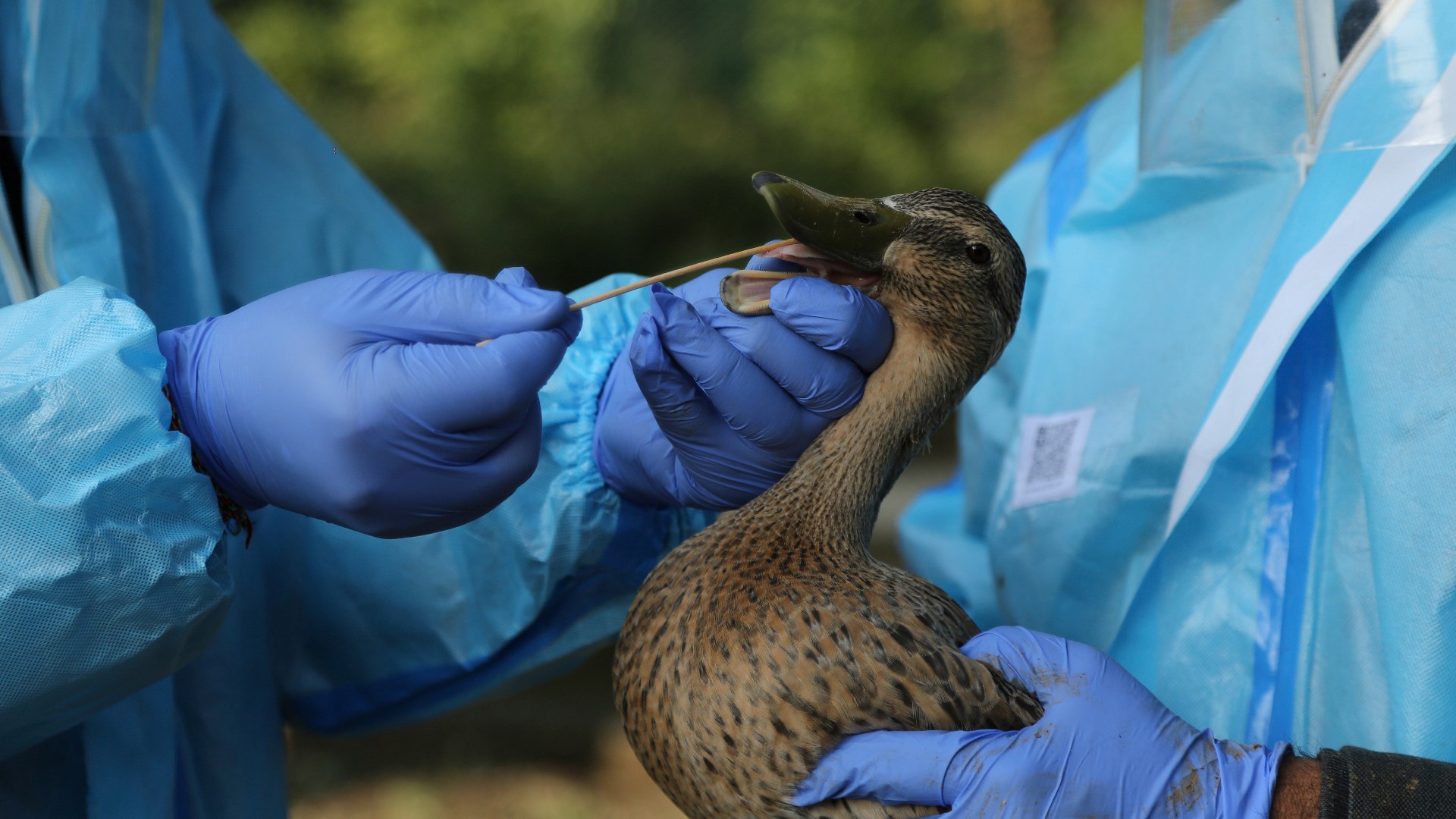INDIANAPOLIS — Avian flu spreads fast and can decimate an entire flock, but there are a few simple steps you can take to keep your birds safe.
The Indiana Poultry Association and Indiana State Board of Animal Health said Hoosiers can take several measures to make sure their flocks are protected.
The main thing to keep in mind is biosecurity, implementing procedures that can prevent introduction and spread of disease-causing organisms throughout flocks.
Experts say large-scale poultry owners and smaller operations both need to keep biosecurity principles in place in order to mitigate risk to flocks.
"It basically means interacting with your flock and other flocks in a clean, hygienic manner. It is just being very cognizant about changing shoes and boots wearing personal protective equipment," said Rebecca Eifert Joniskan, president of the Indiana State Poultry Association.
The first step to take during an outbreak is to disinfect everything. That means shoes, clothes, hands and egg trays. Make sure to wash your hands and scrub your boots.
Avian influenza is spread mostly through direct contact between birds, but it also spreads through contact between equipment or materials including water and feed that have been contaminated by feces or saliva of infected birds, according to the CDC.
Any birds returning from shows should be isolated and monitored for signs of illness for 30 days. It's also crucial to keep any wild birds away from your flock.
Restrict visitors to your property during times of outbreak. Visitors shouldn’t have contact with your flock, and you should also avoid visits to poultry farms or other bird owners.
Keep wild birds and pests out of poultry houses or coops and don’t let your poultry have contact with migratory birds. Feed bins and water should be secured to prevent contamination from wildlife.
Make sure to keep a lookout for signs of illness.
Drops in egg production, swelling, or any discoloration are signs your bird could be suffering from avian influenza. Gasping for air, twisting of the neck or falling down are also signs.
If you do see these signs of sickness or a death within your flock, make sure to fill out a questionnaire with the Indiana State Board of Animal Health.
Avian influenza does not pose a risk to humans.
The first confirmed case avian influenza was identified in a commercial turkey flock in DuBois County on Feb. 9, 2022.
It was the first report of bird flu in commercial poultry in the United States since 2020, and the first in Indiana since 2016.
What other people are reading:
- IMPD: Changes to red flag procedures are working 1 year after FedEx shooting
- Friday procession honors memory of Indianapolis man who died during Nevada RV trip
- Investigative genealogy cracking Indiana cold cases
- IU researchers developing rotavirus/norovirus oral infant vaccine
- Here's when Hoosiers can expect their $125 automatic tax refund
- Cat swept away by Texas tornado shows up the following day, says family
- Mom ‘filled with joy,’ announces daughter Tinslee Lewis is home after years-long legal fight to keep her on life support
- Tech company will implant payment chip into your hand

